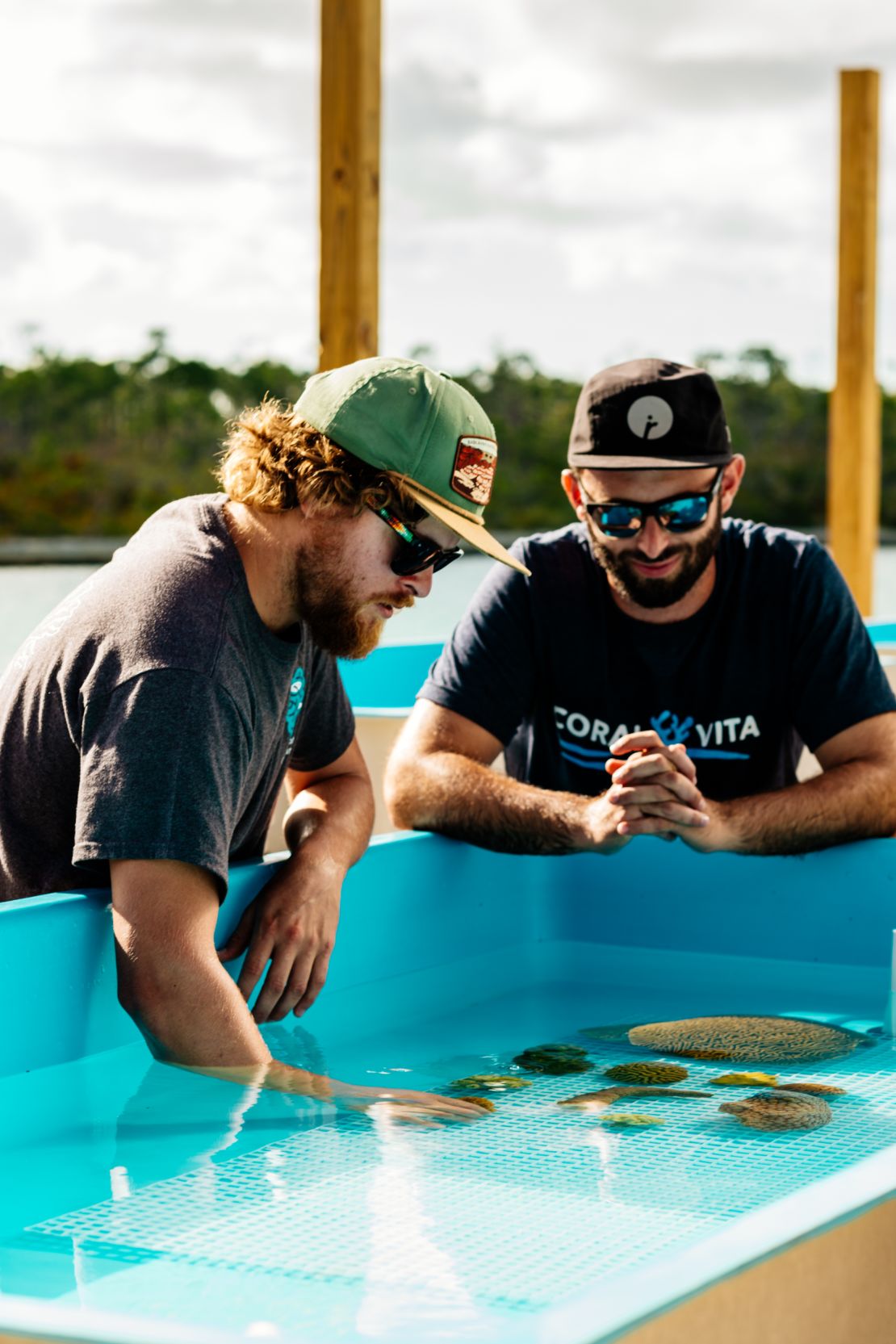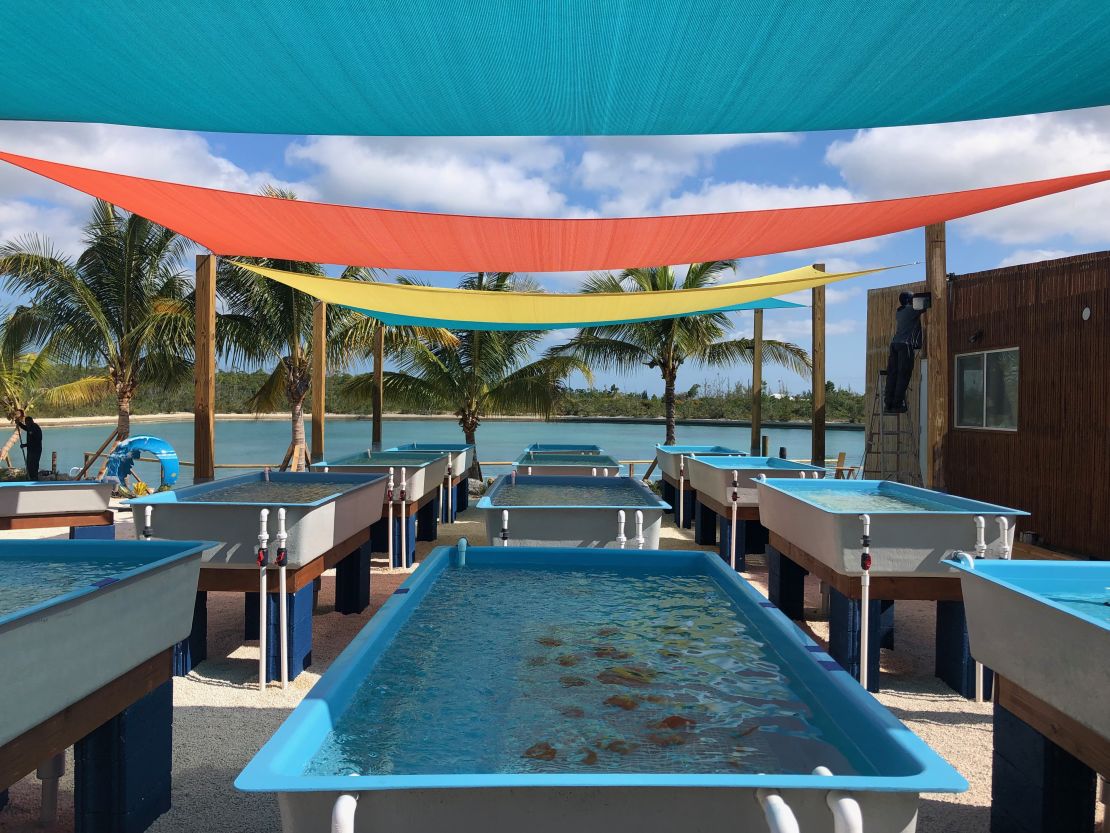Story highlights
By 2050, we could lose over 90% of our reefs
The biggest threat to reefs is climate change, which is triggering mass coral bleaching
Startup Coral Vita aims to revive reefs worldwide and help them adapt to climate change
The battle to save our most diverse ecosystems is entering a critical phase.
Our marine habitats and rainforests find themselves on the frontlines of the planet’s greatest conflict – one that threatens countless species and the health of future generations – the fight to avert a climate crisis.
The world has lost over half of its coral reefs in the past 30 years due to climate change, overfishing and pollution.
Read more: What is climate change? Your questions answered
Coral bleaching, which is caused by warmer ocean temperatures, has already destroyed half of Australia’s Great Barrier Reef.
By 2050, nearly all the world’s reefs will be at risk, according to the US National Oceanic and Atmospheric Administration.
Underwater desert
In an effort to prevent this alarming prospect, two US environmental entrepreneurs have taken a stand, opening the world’s first commercial land-based coral farm in the Caribbean.
fSam Teicher and Gator Halpern, both 29, grew up near the ocean in the United States and connected over their shared passion for coral reefs at the Yale School of Forestry and Environmental Studies.
Having witnessed the “mass problem of reef degradation” first-hand while working in Mauritius, Teicher paired up with Halpern to found Coral Vita, a startup which aims to revive reefs worldwide and help them adapt to the impacts of climate change.
“[Global reef loss] is an ecological and socio-economic tragedy. A quarter of marine life depends on coral reefs and a billion people around the world depend on them for their livelihoods,” Teicher told CNN.
Read more: We’re losing the war on climate change
After securing $2 million in investment, they opened the first farm last month, on Grand Bahama, The Bahamas’ most northern island, where fishermen told them local reefs look like “rubble fields compared to the underwater forests they [once were].”
“They describe it like going out to fish in an underwater desert,” Teicher said.

Global reef restoration
Coral Vita uses a technique called micro-fragmentation which involves removing coral fragments from the ocean and breaking them into tiny pieces. This stimulates tissue growth and allows fragments to grow into clones at up to 50 times the normal rate in land-based nurseries, before they are planted back into the ocean.
According to Teicher and Halpern, this new method enables them to scale up previous restoration efforts, which have so far focused on reviving coral colonies underwater.
Teicher said traditional coral farming was too slow and restrictive as it only allowed for the restoration of fast-growing reefs.
“Underwater coral nurseries struggle to scale to counter global degradation and are jeopardized by events like storms, fishing accidents, and bleaching events,” he added.
Coral Vita is a commercial business, which sells “restoration services to customers who depend on reefs’ tourism, fisheries, and coastal protection benefits”, including governments, conservation groups and insurance companies, Teicher explained.
With their pilot project in The Bahamas, Teicher and Halpern aim to grow 10,000 coral fragments from 10 local species, but in the future they hope to open restoration farms growing millions of different corals in all countries with reefs and revive all dying species.
“The reefs and people who depend on them need help everywhere,” Teicher said, adding that besides offering food security, reefs also provide coastal residents with flood protection by acting as a natural barrier against storm surges.
According to a recent study, coral reefs annually protect more than 18,000 people in the US from flooding and provide infrastructure benefits worth $1.8 billion.

Climate resilience
The biggest threat to reefs is climate change, according to Teicher.
A study published last year found that mass coral bleaching events are five times more common than they were 40 years ago.
Higher levels of carbon dioxide in the atmosphere have also made oceans more acidic, creating “conditions that don’t allow most corals to thrive,” according to Teicher.
By creating warmer and more acidic growing conditions at its farms, Coral Vita aims to “strengthen coral resilience” and train the reefs to adapt to global warming impacts, he explained.
According to Guilhem Banc-Prandi, a marine biologist at the Interuniversity Institute for Marine Sciences in Eilat in Israel, there is evidence that coral that has undergone microfragmentation performs better in warmer temperatures.
“When we expose those corals to really warm temperatures, they are even performing better [than before],” he said.
But Banc-Prandi said there are also limitations to coral farming on land. It is very expensive and great care must be taken to prevent transplanted corals from being destroyed by natural hazards, he said.
“Restoration must go in parallel with conservation. Not only do we need to bring corals back into the sea, but we also need to rebuild the whole reef ecosystem,” he added.

Although restoration offers hope for the future of our reefs, “it is not a silver bullet,” Teicher warned, stressing that the most important aim should be eliminating pollution and overfishing, and reducing emissions – three global drivers of coral degradation.
“We can replant the forest, but the best thing to do is not cut it down in the first place,” he said.
Correction: This story has been updated to correct that Coral Vita is the world’s first commercial land-based coral farm.










